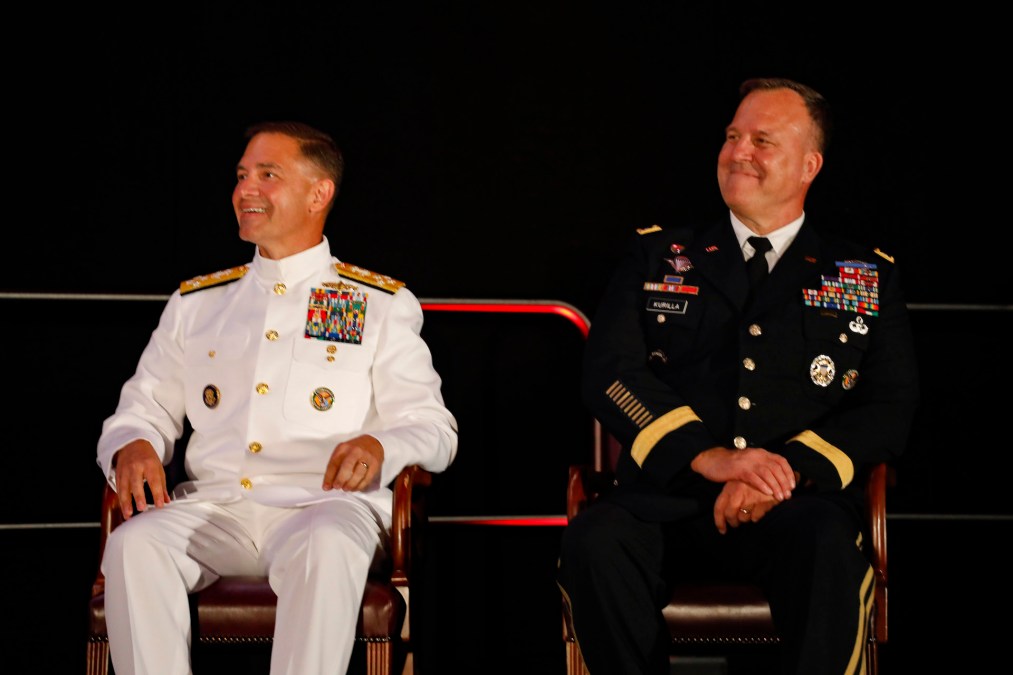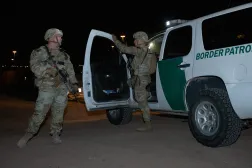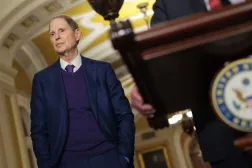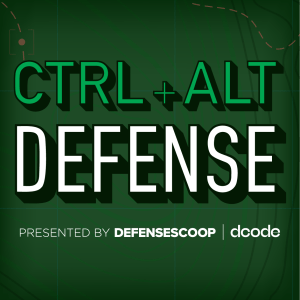Adm. Cooper takes the helm at Centcom

Adm. Brad Cooper is now the top officer at U.S. Central Command following Friday’s change-of-command ceremony in Tampa, Florida.
Cooper is no stranger to Centcom — which is headquartered in Tampa and oversees U.S. military operations in the Middle East region — having most recently served as deputy commander. Prior to that, he commanded Naval Forces Central Command and 5th Fleet, which is headquartered in Bahrain.
The Senate in late June confirmed President Donald Trump’s nomination of Cooper. He’s now officially at the helm as a four-star after taking over from Army Gen. Michael Kurilla.
Cooper has demonstrated an affinity for bringing emerging technologies into the U.S. military. During his time heading NAVCENT and 5th Fleet, he oversaw the establishment and transition to full operational capability of Task Force 59, which employs a variety of unmanned systems, AI and networking tools for intelligence, surveillance and reconnaissance missions in the vast waters that are part of Centcom’s area of responsibility.
Cooper suggested that he plans to go even further as the combatant commander in adopting new tech.
In written responses to advance policy questions ahead of his confirmation hearing, Cooper told members of the Senate Armed Services Committee that, if he confirmed, he intended to “launch new initiatives that advance our overmatch through the employment of cutting-edge technologies, including AI-enabled, unmanned platforms and digital integration. Ultimately, we must protect our homeland, counter malign influence, ensure freedom of navigation, compete strategically, and ensure USCENTCOM remains a combat-credible force for security in the region.”
He also indicated that he would look to industry for innovations.
“In my own experience, having commanded the Navy’s first unmanned and artificial intelligence task force, I’m very familiar with the capabilities that exist in America’s elite tech sector. I believe that we need to leverage that tech sector to maximum capability and deliver capability in the very near term, because we could do more,” Cooper told lawmakers at his confirmation hearing.
The nature and character of warfare is changing with the proliferation of drones and other enablers, he said, adding that Centcom would benefit from accelerating the delivery of additional systems to protect U.S. forces from those types of weapons.
The command has made adjustments since U.S. troops were killed at Tower 22 in Jordan early last year, Cooper noted.
“We’ve made considerable improvements across the board — layered defense, employing both kinetic capability and non-kinetic capability. We really are leaps and bounds ahead of where we were before. Having said that, I would never be satisfied that we have the maximum readiness. I’ll never be satisfied that we have enough to protect our men and women in uniform. And if confirmed, I would focus on this every single day,” he told senators.
Leading Centcom has proven to be one of the most challenging jobs in the U.S. military in the 21st century. The combatant command was responsible for managing the wars in Iraq and Afghanistan after the 9/11 attacks, as well as a slew of other counterterrorism operations.
Most recently, the organization led Operation Rough Rider against the Houthis in Yemen and the bombing of Iran’s nuclear facilities during Operation Midnight Hammer.
Cooper praised his predecessor during last week’s leadership handover.
“U.S. Central Command and the entire joint force have performed exceptionally well under the leadership of Gen. Kurilla, helping to bolster partnerships, increase lethality of U.S. forces, and defend Americans and civilians abroad,” Cooper said, according to a Centcom press release. “I am deeply grateful for the opportunity to lead America’s sons and daughters as we support the important mission of enhancing regional security and stability in the Central Command region.”






